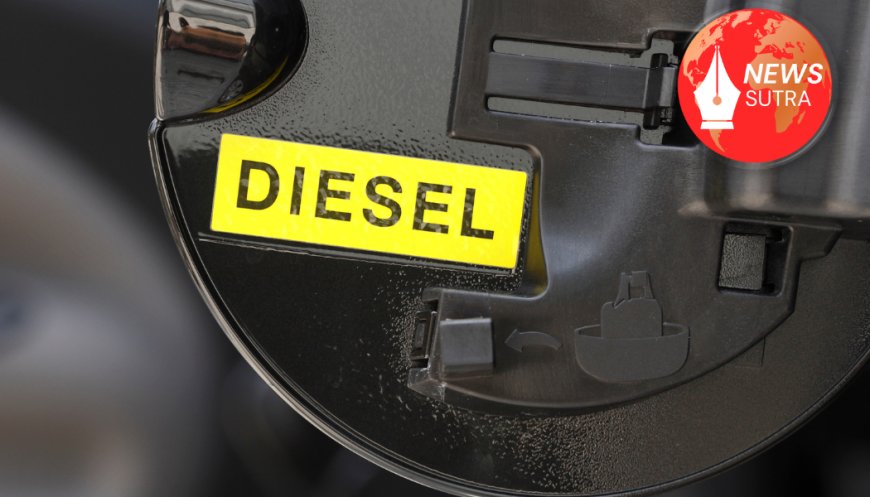Diesel Heist in Jaipur: Underground Tunnel Used to Siphon Fuel from HPCL Pipeline Exposed
A sophisticated diesel theft operation in Jaipur involving an underground tunnel and HPCL pipeline has been busted by police. Here's how the gang pulled off the heist and what it reveals about rising fuel-related crimes in India.

A Deep Dig into Diesel Crime: Jaipur Police Busts a Sophisticated Theft Operation
In a sensational development from Jaipur, Rajasthan, police have uncovered a highly organized diesel theft racket involving a 150-foot underground tunnel dug beneath a house in the Chaksu area. The tunnel directly accessed an Hindustan Petroleum Corporation Limited (HPCL) fuel pipeline, making it one of the most calculated fuel thefts India has seen in recent years.
The operation reportedly spanned several months and highlights a rising trend in white-collar fuel crimes across India. According to The Times of India, the culprits had created a full-fledged illegal connection system to siphon diesel undetected.
How the Theft Was Engineered
Police reports indicate that the gang rented a residential property in Chaksu under the pretense of starting a water supply business. Under the guise of regular civil work, they began digging a tunnel extending over 150 feet toward the HPCL pipeline. The group installed a concealed pipe and pump system that allowed them to steal diesel straight from the pipeline and transfer it into hidden tankers for resale.
What set this operation apart was its methodical planning and technical precision. The pipeline was punctured with industrial equipment designed to avoid detection by HPCL’s monitoring systems. They even scheduled the siphoning during hours of low pipeline pressure to minimize suspicion.
How Police Cracked the Case
The gang came under scrutiny after HPCL officials noticed a drop in pipeline pressure and alerted local authorities. After several days of surveillance and technical inspection using ground-penetrating radar, the police discovered the tunnel. The property was raided, and several suspects were arrested on the spot, including the alleged mastermind behind the operation.
The investigation is ongoing, but early estimates suggest thousands of litres of diesel were stolen, resulting in a financial loss running into lakhs of rupees.
Why Diesel Thefts Are on the Rise in India
India’s dependence on petroleum products and rising fuel costs have turned diesel into a high-value commodity, making pipeline tapping an increasingly attractive crime. The Petroleum and Natural Gas Regulatory Board (PNGRB) has often raised concerns about the lack of surveillance infrastructure on vulnerable stretches of fuel pipelines.
Moreover, diesel has a vast black-market demand due to its use in transport, generators, and heavy machinery, especially in construction and agriculture. As a result, sophisticated gangs are turning to tunneling, siphoning, and even GPS signal jamming to bypass detection.
The Broader Implications for HPCL and Public Infrastructure
HPCL, a subsidiary of ONGC, is responsible for maintaining and securing thousands of kilometers of fuel pipelines across the country. This incident in Jaipur calls attention to the urgent need for advanced surveillance systems, including AI-based pipeline monitoring, tamper alarms, and integration with local police networks.
Public infrastructure like pipelines is often spread across rural and semi-urban areas with little on-ground vigilance, making them prime targets for such thefts.
Legal Ramifications and Security Upgrades Ahead
Authorities have registered a case under multiple sections of the Indian Penal Code (IPC) and Petroleum Act. Charges include theft, criminal conspiracy, and damage to public property. Legal experts suggest that the accused could face imprisonment of up to 10 years if convicted under multiple provisions.
HPCL and local authorities have since begun upgrading security measures. Reports indicate the installation of smart pipeline sensors and drone-based aerial surveillance will be fast-tracked in Rajasthan and other high-risk regions.
Conclusion: A Wake-Up Call for Fuel Security in India
The Jaipur diesel theft isn’t just a case of crime—it’s a glaring indicator of infrastructure vulnerability, organized economic offenses, and a failing surveillance system. With India’s fuel logistics forming the backbone of its transport and industrial economy, such incidents demand serious institutional introspection.














